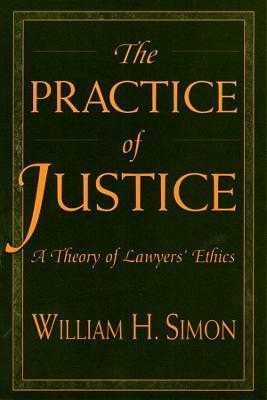
The Practice of Justice
Harvard University Press (Verlag)
978-0-674-00275-3 (ISBN)
Should a lawyer keep a client's secrets even when disclosure would exculpate a person wrongly accused of a crime? To what extent should a lawyer exploit loopholes in ways that enable clients to gain unintended advantages? When can lawyers justifiably make procedural maneuvers that defeat substantive rights? The Practice of Justice is a fresh look at these and other traditional questions about the ethics of lawyering. William Simon, a legal theorist with extensive experience in practice, charges that the profession's standard approach to these questions is incoherent and implausible.
At the same time, Simon rejects the ethical approaches most frequently proposed by the profession's critics. The problem, he insists, does not lie in the profession's commitment to legal values over those of ordinary morality. Nor does it arise from the adversary system. Rather, Simon shows that the critical weakness of the standard approach is its reliance on a distinctive style of judgment--categorical, rule-bound, rigid--that is both ethically unattractive and rejected by most modern legal thought outside the realm of legal ethics. He develops an alternative approach based on a different, more contextual, style of judgment widely accepted in other areas of legal thought.
The author enlivens his argument with discussions of actual cases, including the Lincoln Savings and Loan scandal and the Leo Frank murder trial, as well as fictional accounts of lawyering, including Kafka's The Trial and the movie The Verdict.
William H. Simon is Kenneth and Harle Montgomery Professor of Public Interest Law at Stanford University.
Introduction An Anxious Profession The Moral Terrain of Lawyering The Dominant View and Alternatives A Preview False Starts A Right to Injustice The Entitlement Argument The Libertarian Premise The Positivist Premise Libertarianism versus Positivism The Problem of Retroactivity The Problem of Private Legislation Conclusion Justice in the Long Run Confidentiality The Adversary System and Trial Preparation Identification with Clients and Cognitive Dissonance The Efficiency of Categorical Norms Aptitude for Complex Judgment Conclusion Should Lawyers Obey the Law? Lawyer Obligation in the Dominant View Positivist versus Substantive Conceptions of Law The Pervasiveness of Implicit Nullification Some Clarification about Nullification Nullification versus Reform Tax versus Prohibition Determination versus Obligation A Prima Facie Obligation? Divorce Perjury and Enforcement Advice Revisited Conclusion Legal Professionalism as Meaningful Work The Problem of Alienation The Professional Solution The Lost Lawyer The Brandeisian Evasions Self-Betrayal Conclusion Legal Ethics as Contextual Judgment The Structure of Legal Ethics Problems Some Objections The Moral Terrain of Lawyering Revisited Is Criminal Defense Different? Contested Issues Weak Arguments for Aggressive Criminal Defense Social Work, Justice, and Nullification The Stakes Conclusion Institutionalizing Ethics A Contextual Disciplinary Regime: The Tort Model Restructuring the Market for Legal Services Conclusion Notes Further Reading Acknowledgments Index
| Erscheint lt. Verlag | 14.4.2000 |
|---|---|
| Verlagsort | Cambridge, Mass |
| Sprache | englisch |
| Maße | 152 x 229 mm |
| Gewicht | 372 g |
| Themenwelt | Geisteswissenschaften ► Philosophie ► Ethik |
| Recht / Steuern ► Allgemeines / Lexika | |
| Recht / Steuern ► EU / Internationales Recht | |
| Recht / Steuern ► Privatrecht / Bürgerliches Recht ► Berufs-/Gebührenrecht | |
| ISBN-10 | 0-674-00275-X / 067400275X |
| ISBN-13 | 978-0-674-00275-3 / 9780674002753 |
| Zustand | Neuware |
| Haben Sie eine Frage zum Produkt? |
aus dem Bereich


